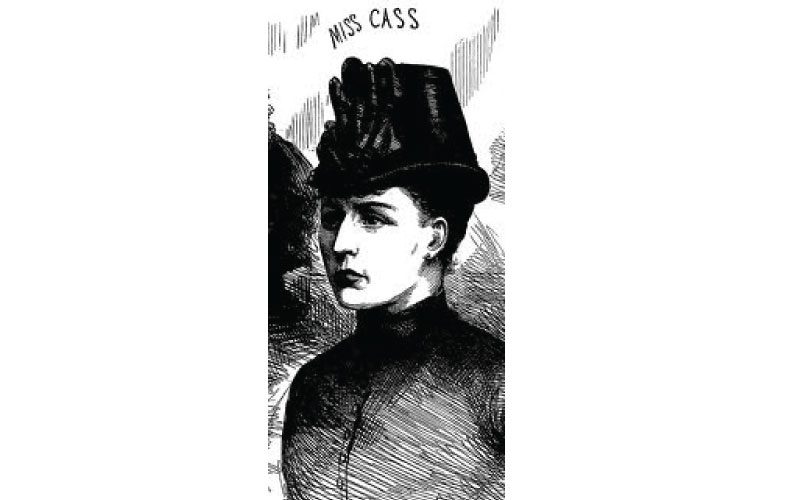Elizabeth Langley (1863-?)
Born in Grantham as Elizabeth Cass, she moved to London to be a dress designer early in 1887, employed by Mary Ann Bowman , living on her premises on Southampton Row.
And that’s when she became a cause célèbre – but not in the rag trade.
In June 28 that year she went out in the late evening for some shopping at Jay’s in Regent Street (a respected retailer of silk and millinery). It was the week of Queen Victoria’s Golden Jubilee, and London was thronged with people enjoying a month of record sunshine.
As she pushed her way through the Oxford Street crowds to go home, she was arrested by PC Endacott charged with soliciting for prostitution, who claimed it was the third time he had seen her plying her trade.
The following morning she appeared at Great Marlborough Street Police Court.
Mrs Bowman testified that Elizabeth had been in London only a few months, and had never before been out late at night. Further, she was a respectable woman of perfect character in a good job.
The Magistrate found Miss Cass not guilty but told her: “Just take my advice: if you are a respectable girl, as you say you are, don’t walk in Regent Street at night, for if you do you will either be fined or sent to prison after the caution I have given you.”
The implication is that the Magistrate believed Miss Cass was really guilty, but had persuaded Mrs. Bowman to perjure herself to secure her acquittal.
Mrs Bowman submitted a complaint to the Metropolitan Police and Liberal MP Llewellyn Atherley-Jones, raised the case in Parliament.
The Home Secretary ordered the Commissioner of Police, Sir Charles Warren, to undertake an inquiry. Pc Endacott was suspended and the Lord Chancellor began an inquiry into Mr Newton’s conduct.
The police inquiry made no findings with Sir Charles concluding: “I am not prepared to say that I can see any grounds for accusing Pc Endacott of wilful Perjury.”
Miss Cass and Mrs Bowman and had already begun a private prosecution of Pc Endacott and police colleagues raised cash for his defence.
Meanwhile the inquiry into the magistrate agreed to give Newton a formal reprimand.
The Grand Jury found a true bill against Pc Endacott for perjury in September but the trial was postponed, eventually beginning on October 31.
The following day Miss Cass, now Mrs Langley having married in the meantime, was called to give evidence.
Mr Justice Stephen ruled the case was confined to whether Endacott committed perjury in saying he had seen Miss Cass three times before in Regent Street.
The Judge further said that in his own view, there was no evidence that Endacott had been wilfully mis-stating the truth: the most likely explanation was that he had been making an honest mistake.
The Solicitor-General accepted that view and withdrew the prosecution.
Mrs Langley and her defenders were not pleased by this outcome as the inquiry and trial had given PC Endacott’s legal representatives the opportunity to make further assaults on her character.





Leave a Reply
You must be logged in to post a comment.